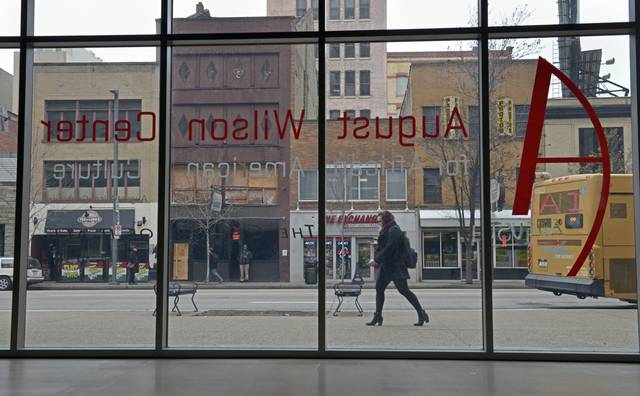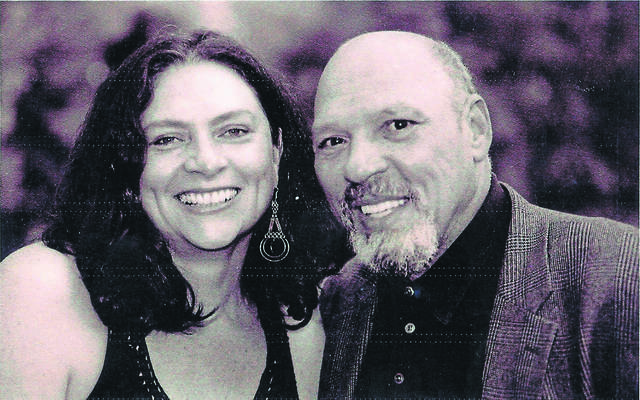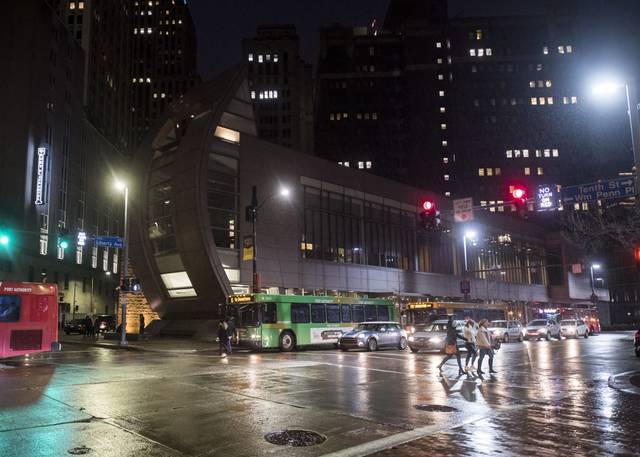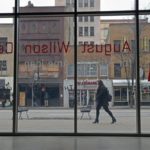August Wilson didn’t rely merely on his imagination when he set to work composing a play.
The Pittsburgh native’s writing process involved immersing himself in sights, sounds and people that inspired him, recalled the Pulitzer Prize-winning playwright’s widow, Constanza Romero Wilson.
He’d jot down ideas and dialogue on napkins while observing diners at Eddie’s coffee shop in the Hill District.
At his home office, adorned with the paintings of Romare Bearden and stacked with books by Jorge Luis Borges, he’d listen to blues artist such as Bessie Smith.
“For him, writing was a very spiritual activity,” Romero Wilson said by phone from Seattle. “He used to circle his typewriter and start with a fresh piece of paper, and from there build up all these characters. He really used the influences that were going on around him, and would get in contact with his inner spirit, his inner voices.”
August Wilson’s ascent from a budding young poet who dropped out of high school to one of America’s most celebrated playwrights soon will be on display in “August Wilson: The Writer’s Landscape,” the first permanent exhibit at Downtown Pittsburgh’s August Wilson African American Cultural Center.
Romero Wilson, executor of Wilson’s estate, is helping to provide materials and guidance in developing the exhibit honoring her husband, who died in 2005 at the age of 60. Wilson won the Pulitzer Prize for drama twice over the course of his career, in addition to numerous awards in the theater world.
“I think that Pittsburgh has now claimed August as its native son, and it’s wonderful to see his contributions being recognized and celebrated,” Romero Wilson said. “I think that what he did for African American culture — to write about his African American people in such a complete, well-rounded way, with all the wishes and the pain and the glory — that is something to really celebrate.”
Scheduled to open this fall, the 1,800-square-foot exhibition space “will explore the people and places of Pittsburgh, where Wilson was born and raised, and which had a profound impact on shaping his worldview and inspiring his unprecedented 10-play American Century Cycle,” the center’s leaders said Tuesday in a news release.
It will be free and open to the public.
Visitors will get an interactive glimpse into Wilson’s writing process and Pittsburgh influences through three main sections, or “acts.”
They can stop by the “Coffee Shop,” an area resembling the Hill District diner that Wilson frequented, and see examples of notes he scrawled on napkins that provided the basis for many of his characters.
The second section, “Home Office,” will feature a replica of Wilson’s working environment and items that he prized, including his writing desk, manuscripts, books and records from his collection donated by the Wilson Estate.
“We’ll have a whole bunch of examples of music he was listening to, we’ll have examples of the books that he was reading, the arts he was looking at,” Romero Wilson said. “A lot of those influences came through in the works he created.”
“The Street” will guide visitors on a walk through Wilson’s 10-play American Century Cycle, with video, props and costumes from Broadway productions of his work and updates on the many places around the world that continue to perform his plays.
The exhibit is being funded with support from the Hillman Family Foundations and a $300,000 special RADical Impact grant from the Allegheny Regional Asset District, in addition to support from RAD for annual operations.
“August Wilson’s legacy is so much a part of Pittsburgh and Pittsburgh is so much a part of his work,” said David K. Roger, president of the Hillman Family Foundations. “We are pleased to support the August Wilson African American Cultural Center in designing this important exhibition that will highlight his imprint on literature and drama that is now celebrated around the world.”
Cydney Nunn, spokeswoman for the center, said the support “will allow us to put this permanent exhibition on the map nationally, helping to promote tourism to Pittsburgh. … ‘August Wilson: The Writer’s Landscape’ will be a monumental addition to Pittsburgh, honoring one of our most prolific native sons.”
Wilson, born in 1945, grew up in the Hill District as one of six children of a black cleaning woman and a white German immigrant baker who was absent for much of Wilson’s life. When his father died in 1965, Wilson, born Frederick August Kittel, took his mother Daisy’s maiden name.
A self-educated writer, he left Pittsburgh’s Central Catholic High School amid racial taunts, and walked out of Gladstone High School in 10th grade after a teacher accused him of plagiarizing a paper on Napoleon. The Carnegie Library in Oakland — “where they had all the books in world,” he once wrote — became his university.
Wilson rose to fame by writing plays known as the Pittsburgh Cycle while living in St. Paul, Minn., and Seattle. He left Pittsburgh in 1978.
His plays “Fences,” “The Piano Lesson” and “Jitney” are soaring poetic works grounded in the day-to-day lives of blacks in the Hill District, tackling racism head-on.
“He was intense,” Romero Wilson said. “He didn’t suffer fools gladly, but at the same time, he was gracious, kind, always looking for justice, in having things be fair for all people, for all countries, for all the world.”
August Wilson is buried in Greenwood Cemetery in O’Hara.
“He could’ve done a lot more, had cancer not taken him away from us,” Romero Wilson said, “but he definitely felt very pleased with his life’s work.”













